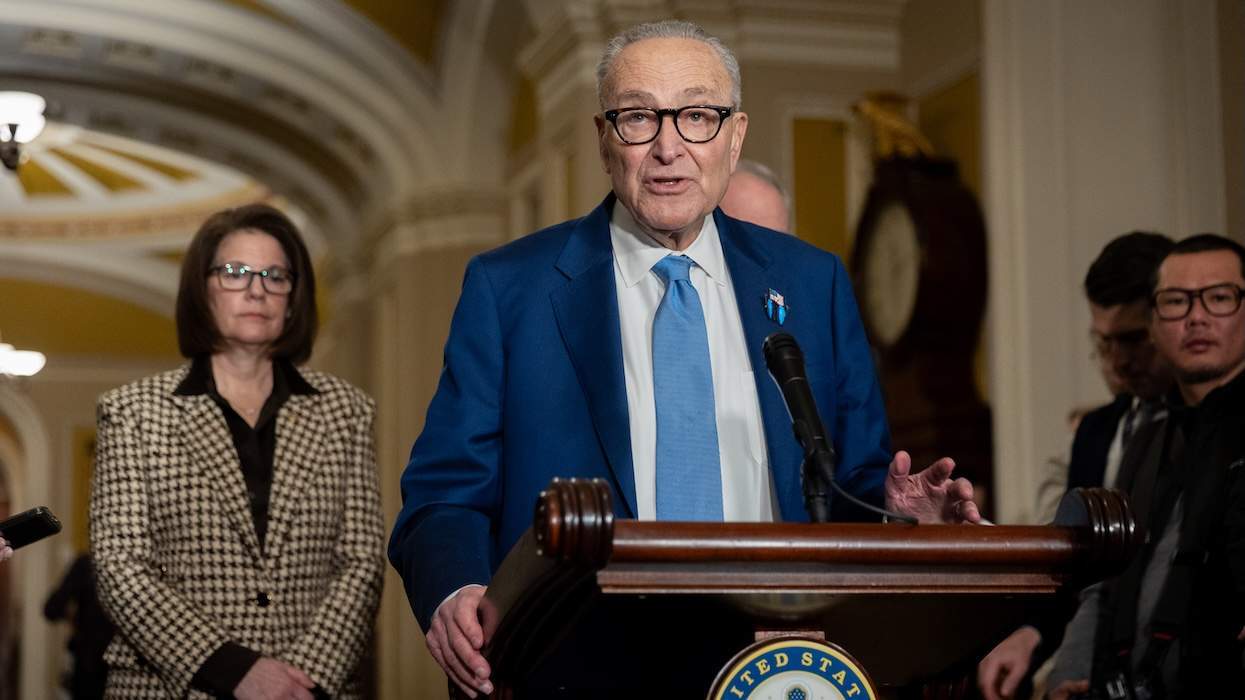By any measure the housing relief bill that passed Congress and was signed by President Bush in late July was a remarkable achievement. The bill, which includes a program to help hundreds of thousands of families facing foreclosure, is an unprecedented intervention meant to stop the free fall of the nation's housing market. That it was able to attract bipartisan support and avoid being vetoed by the president is testament to the skills of Barney Frank, the openly gay Democrat who serves as the chairman of the House Committee on Financial Services.
"He is one of the giants of the Congress, a real legislator," says Thomas Mann, a senior fellow at the Brookings Institution. "People think of him as this ideological liberal, but the fact is that Barney Frank understands what it takes to legislate. He understands what it takes to lead."
Currently in his 14th term in Congress, Frank is at the center of Capitol Hill's response to the faltering economy. The House committee that he chairs oversees all aspects of the financial services industry -- including banking, insurance, public housing, and real estate as well as the Federal Reserve, the U.S. Treasury, and the Securities and Exchange Commission -- making the committee one of the most powerful in Congress. And Frank's accomplishments as chairman may establish a broader, more profound legacy for the politician synonymous with gay advocacy.
"His committee is influential, and any person who is chair of it would have wide-ranging authority," says Larry Sabato, director of the Center for Politics at the University of Virginia. What has distinguished Frank is his ability to cross political lines in order to get things done, often working with Republicans and winning praise from representatives who disagree with him, sometimes strenuously, on gay issues. "Congressman Frank frequently goes out of his way to reach across the aisle and work with all members," says Texas Republican representative Ron Paul, the former 2008 presidential candidate who with Frank cosponsored legislation on online gambling.
At first glance, sexual orientation would seem beside the point in the debate about the housing and financial services markets -- except that Frank makes a point of reminding everyone he works with that he is gay. In the process he reaches both political circles and the highest echelons of Wall Street.
"The only one who makes it an issue is me, because I want to remind them that the person they should be grateful to is a gay man who has a boyfriend," says Frank, who consciously discusses his boyfriend, Jim Ready, the way his colleagues talk about their wives. "It's never been a negative issue. I want to remind people that's who I am."
That includes using his trademark wit. When asked why the White House has been reluctant to support more government intervention in financial markets, Frank quips, "It's like asking me to judge the Miss America contest -- if your heart's not in it, you don't do a very good job."
The housing relief bill was "very close to the top" in terms of the most complex issues on which he's worked, Frank says. Successfully steering the bill through the House meant delicate negotiations with Republican representatives and the White House as well as with Senate members working on their own version of the bill. In addition, a wide range of disparate interests -- from the mortgage industry to low-income housing advocates -- also weighed in on the measure. Frank sees it as a sign of the bill's success that after it passed he received congratulations from both Secretary of the Treasury Henry Paulson and Sheila Crowley, head of the National Low Income Housing Coalition.
Frank is famously impatient with anyone who doesn't meet his level of expectations, but his intelligence has earned him the respect of the business community. He's frequently invited to speak at corporations where he interacts with powerful individuals for whom gay and lesbian rights are not likely to be foremost.
For the foreseeable future, Frank will likely be able to keep using his platform as committee chair as a reminder that gay rights also matter. "His power depends on the Democrats remaining in power, which they will for the next two years at least," says Sabato. But just as important, he says, Frank clearly relishes his work. "I think he really enjoys the House of Representatives. He's a classic man of the House."















